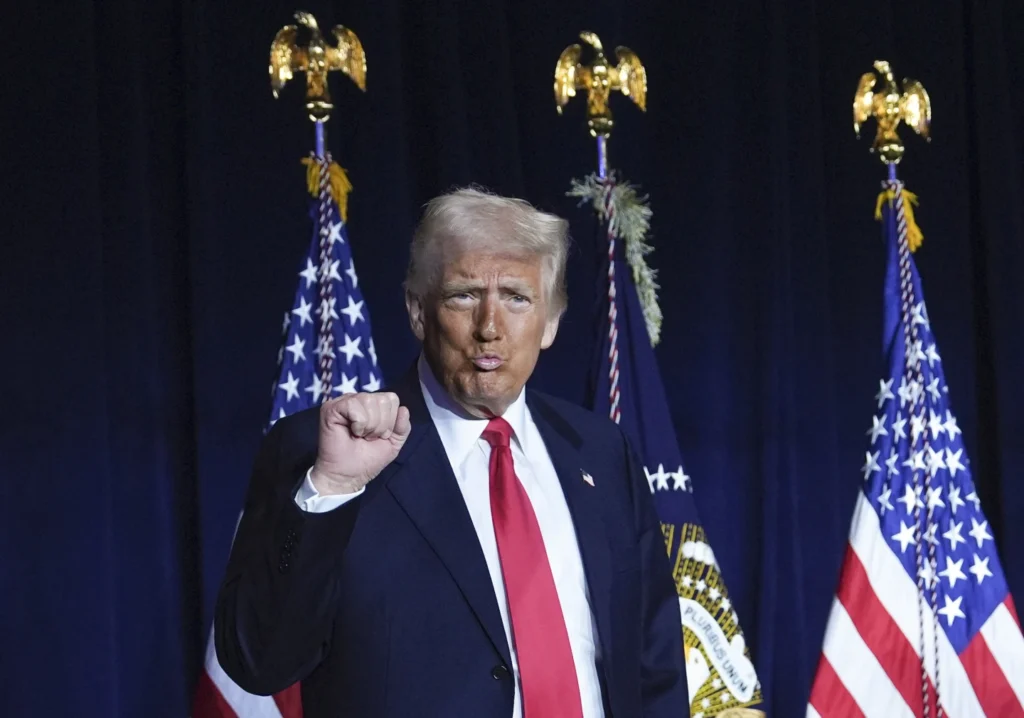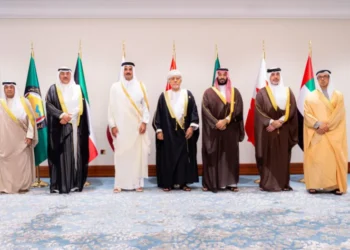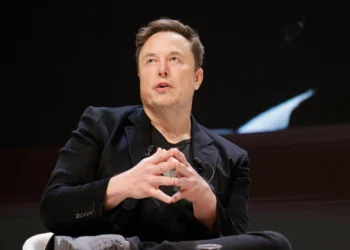Pharmaceutical leaders and UK officials are scrambling to respond to U.S. President Donald Trump’s drug tariff threat, a move that could severely disrupt Britain’s multi-billion-pound pharmaceutical industry.
President Trump has signaled plans to impose a 25% levy on imported medicines — a decision that would send shockwaves through the sector and heavily impact UK giants GlaxoSmithKline and AstraZeneca.
The United States remains the largest market for these two pharmaceutical heavyweights. Nearly 40% of AstraZeneca’s products, worth more than £20 billion, are exported across the Atlantic. With Trump’s looming threat of pharmaceutical tariffs, both the government and industry players are making urgent diplomatic and trade overtures to avoid being caught in the economic crossfire.
On April 2, UK government officials hosted a private dinner with pharmaceutical executives, coinciding with Trump’s announcement of sweeping Liberation Day tariffs. One government source admitted the UK’s current stance is reactionary.
“We’re all just reacting to whatever comes out of the White House but I can’t see a world where we wouldn’t want to protect one of our biggest export markets and we wouldn’t include that in discussions.”
UK government source
While medicines have long enjoyed tariff exemptions globally — thanks to a 1995 World Trade Organization (WTO) agreement designed to keep essential drugs affordable — Trump appears poised to challenge that consensus. Although pharmaceuticals are currently spared from the baseline 10% tax he has placed on other imports, his recent comments point toward a shift.
“We don’t make our own drugs, our own pharmaceuticals – we don’t make our own drugs any more […] all I have to do is impose a tariff. The more, the faster they move here.”
President Donald Trump

Industry voices have raised alarm over the potential consequences of such a policy.
Pharma Sector Braces For Economic Fallout From Drug Tariff Threat
Johnson & Johnson CEO Joaquin Duato warned in a call with analysts that the tariff could trigger drug shortages. “There’s a reason why pharmaceutical tariffs are zero. It’s because tariffs can create disruptions in the supply chain, leading to shortages,” he cautioned.
The UK embassy in Washington is reportedly lobbying hard for Britain to be excluded from any forthcoming pharmaceutical levies, working in tandem with the US-based Biotechnology Innovation Organization to secure an exemption.
Vice President JD Vance has hinted that the UK may avoid the harshest consequences due to the strong cultural and political ties between the two nations.
“The president really loves the United Kingdom. He loved the Queen. He admires and loves the King … It is a very important relationship. “I think there’s a good chance that, yes, we’ll come to a great agreement that’s in the best interest of both countries.”
Vice President JD Vance

British officials are hoping that those sentiments translate into policy. Labour Minister Lilian Greenwood reiterated the government’s position during a media briefing on Wednesday.
“We know how important the life sciences sector is in the UK … Pharmaceuticals, obviously, are very important to us. Of course, we’d be aiming for there to be no tariffs. But that’s part of a negotiation.”
Lilian Greenwood
Professor Gino Martini, who leads the University of Birmingham’s Precision Health Technologies Accelerator, also weighed in on the potential dangers.
“It is a multi-site, multi-country supply chain and anything which hampers that could result in unintended consequences for patients, including the availability of medicines. We do not want patients to suffer.”
Professor Gino Martini
As the Trump drug tariff threat looms, both government negotiators and industry leaders remain locked in an urgent effort to safeguard Britain’s pharmaceutical exports — and to shield patients from the ripple effects of disrupted supply chains.
READ ALSO: Communications Minister Outlines Support Plan for One Million Coders



















